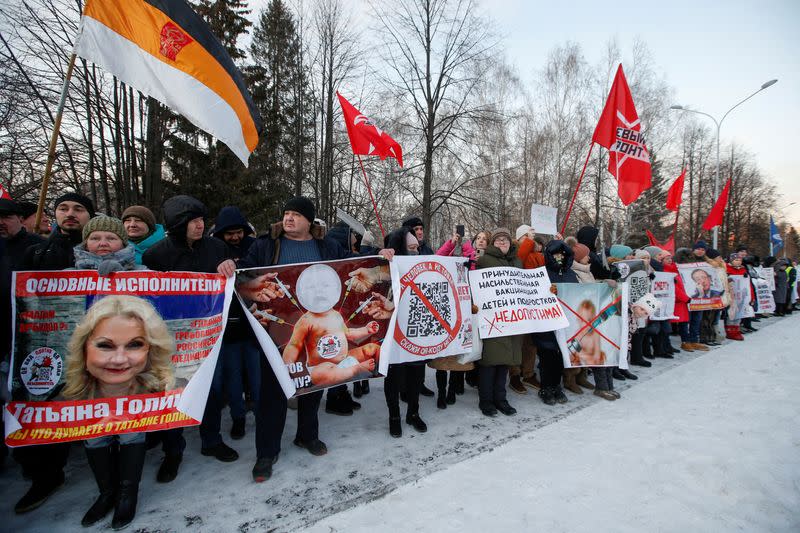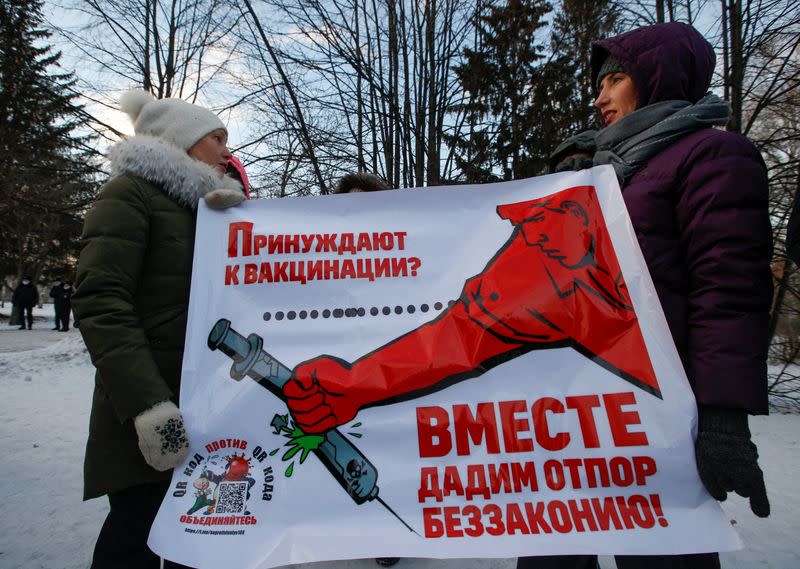Russia shelves plan for QR vaccination proof on planes and trains
- Oops!Something went wrong.Please try again later.
- Oops!Something went wrong.Please try again later.
By Alexander Marrow and Gleb Stolyarov
MOSCOW (Reuters) - Russia's parliament will shelve a draft bill that would have required people travelling by plane or train to present QR codes showing proof of immunity to COVID-19, the speaker of the State Duma said on Monday.
The U-turn came in response to strong public opposition to the proposal, which would effectively have forced people to get vaccinated - or show that they had caught the disease and recovered - in order to travel around the country.
Russia has the third highest death toll from COVID-19 after the United States and Brazil, and the Kremlin has expressed frequent frustration at the slow public uptake of the Russian-made Sputnik V vaccine.
"The decision to withdraw the bill ... is the result of dialogue between the State Duma and the government based on the opinions from regions and citizens' appeals," the lower house of parliament's speaker, Vyacheslav Volodin, wrote on social media.
Kremlin spokesman Dmitry Peskov told reporters: "The document is very complicated and requires very scrupulous work, which will now continue."
Authorities have used QR codes to control access to various public settings but there is no unified approach across Russia's 80-plus regions. In Moscow, for example, codes are required to visit theatres and museums.
OVD-Info, a group that monitors protests, says police have made arrests at a number of demonstrations across the country against the use of the codes.
Taxi drivers in the Tatarstan region hiked prices last month, the Interfax news agency reported, after a requirement to show QR codes on public transport came into force. Video footage at the time showed people reacting angrily when being told they could not board buses.
Citizens who have been vaccinated, recovered from COVID-19 or have a negative PCR-test can currently receive a QR code.
The Duma will consider a separate bill that would see QR codes needed to enter public places, including restaurants. Lawmaker Vasily Piskarev said it had a good chance of being passed, Interfax reported, but it may not be necessary if the epidemiological situation improves.
Deputy Prime Minister Tatiana Golikova said Russia had now detected the Omicron coronavirus variant in 16 people who have returned from South Africa.
(Additional reporting by Maria Kiselyova and Dmitry Antonov, editing by Mark Trevelyan and Giles Elgood)



